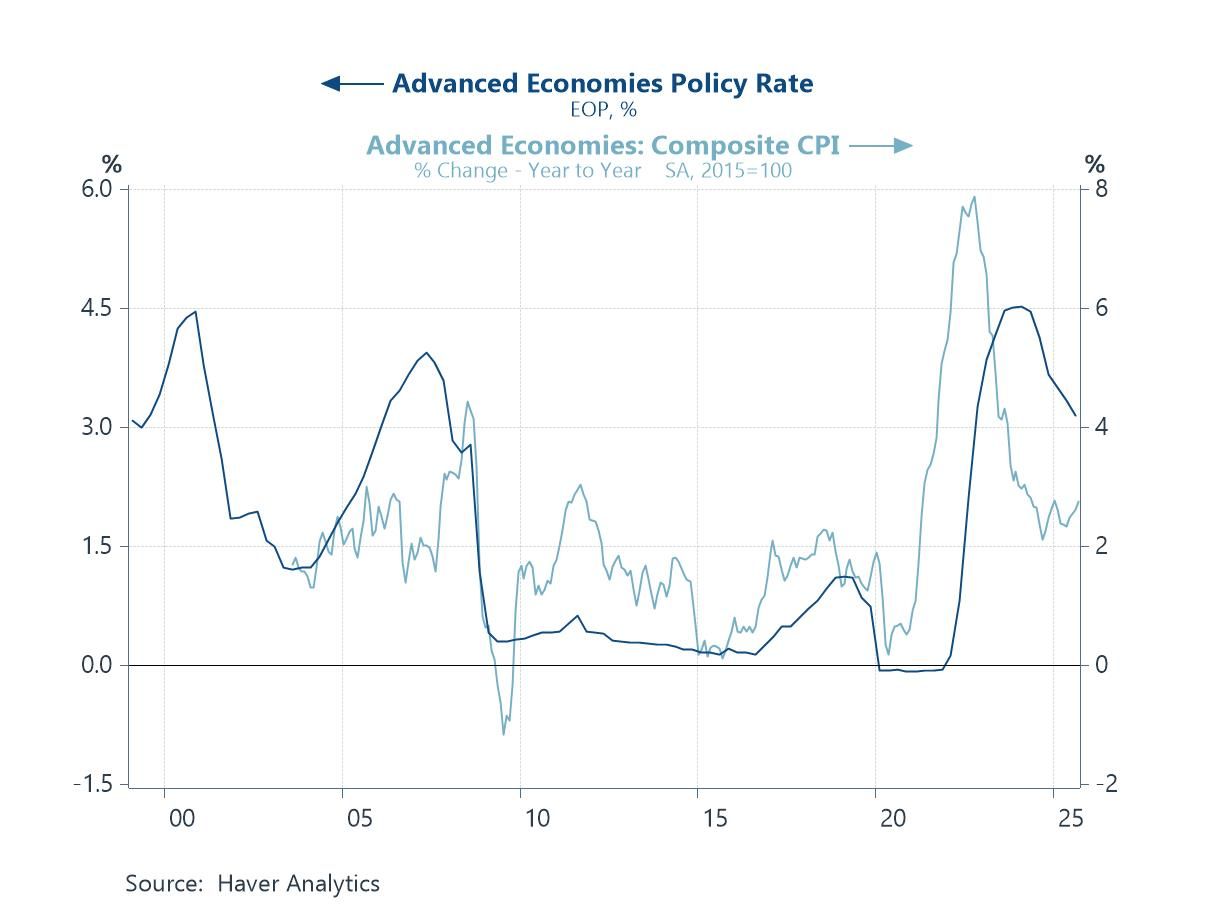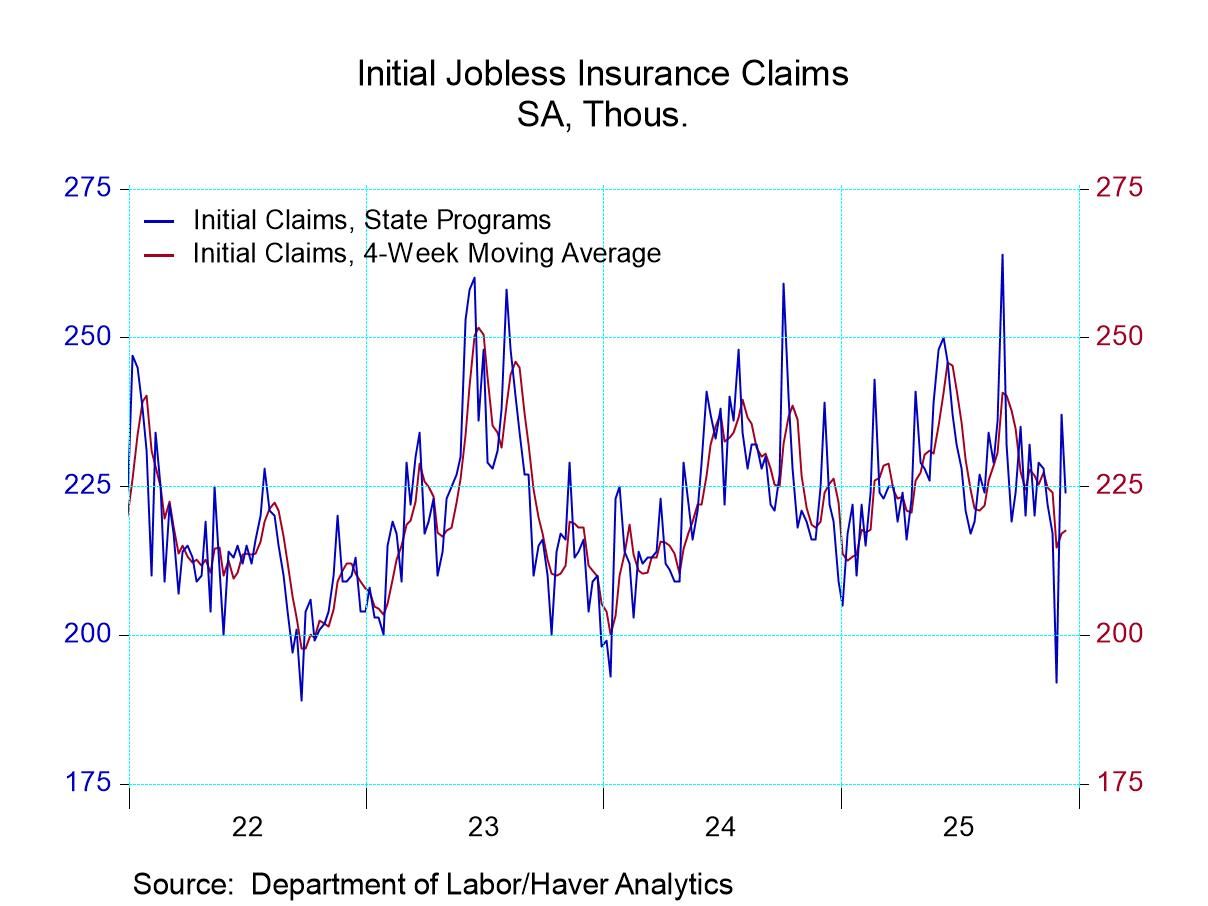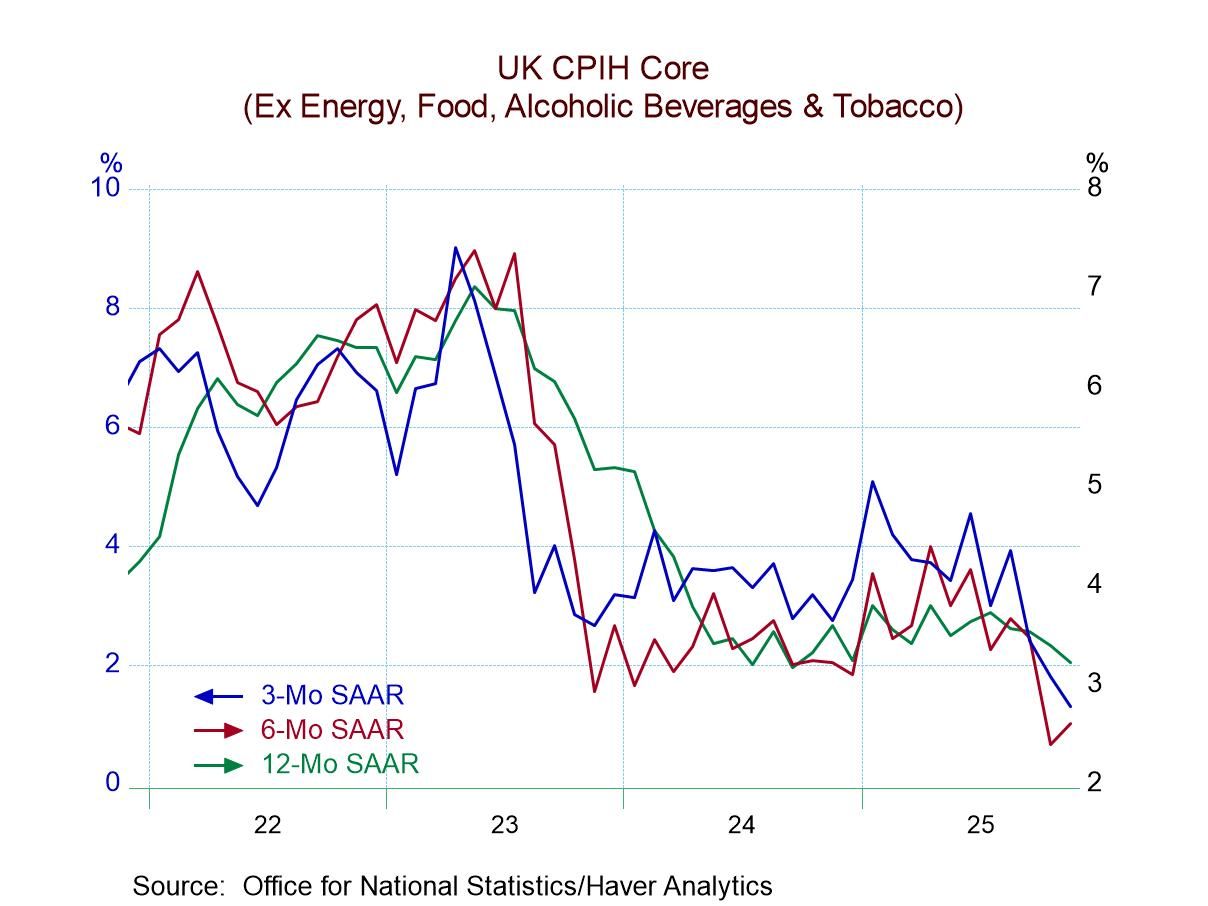 Global| Jun 21 2006
Global| Jun 21 2006Mortgage Applications Dip, # of Unsold Homes Soar
by:Tom Moeller
|in:Economy in Brief
Summary
The total number of mortgage applications dipped 0.8% last week after the 7.0% recovery the prior week. Through early June, applications were just 0.6% below the May average but were 27.9% below the year ago level. Applications to [...]
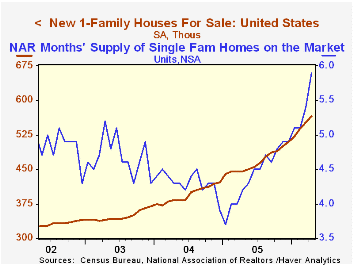
The total number of mortgage applications dipped 0.8% last week after the 7.0% recovery the prior week. Through early June, applications were just 0.6% below the May average but were 27.9% below the year ago level.
Applications to refinance fell 2.2% last week following the 10.6% surge during the week prior. Refis in June were 1.7% below the May average and 43.1% below the year earlier level.
Purchase applications were unchanged from the prior week of the heels of a 4.8% jump. As a result purchase applications in early June were about even with the May average, but were 13.5% below the year ago level.
During the last ten years there has been a negative 80% correlation between 30-year mortgage interest rates and purchase applications while during those years there has been a 54% correlation between the y/y change in purchase applications and the change in new plus existing single family home sales.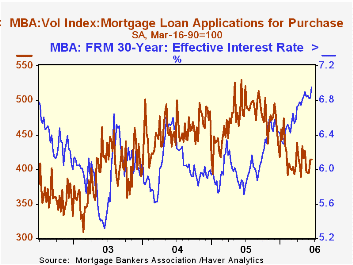
The effective interest rate on a conventional 30-year mortgage increased thirteen basis points to 6.96%. The rate on 15-year financing also rose ten basis points to 6.65%, its highest since April 2002. Interest rates on 15 and 30 year mortgages are closely correlated (>90%) with the rate on 10 year Treasury securities and during the last ten years there has been a (negative) 82% correlation between purchase applications and the effective rate on a 30-Year mortgage.
The Mortgage Bankers Association surveys between 20 to 35 of the top lenders in the U.S. housing industry to derive its refinance, purchase and market indexes. The weekly survey accounts for more than 40% of all applications processed each week by mortgage lenders. Visit the Mortgage Bankers Association site here.
During 2006 sales of new single family homes have fallen 11.5% from the average level during 2005, a decline very much heralded by what has been an 11.7% drop in purchase applications this year versus last year's average. But construction starts so far in 2006 are down only 2.5% from the 2005 average.
The mismatch between the decline in sales and the decline in starts has resulted in a 15% rise in the number of new single family houses for sale YTD vs. the 2005 average. Measuring the increase in unsold new homes y/y results in a 27.0% increase. Increases by region y/y break down as follows: Northeast, +63.6%; South, +36.5%; West, +26.7%; Midwest, -3.6%. These figures are available in Haver's USECON database.
The inventory of unsold existing single family homes has risen a slightly faster 33.2% y/y. Year to date that inventory is up 11.2% and the months' supply on the market is 5.9 times the current sales rate, versus 3.7 times in early 2005.
Adjusting to the Next Stage of the Housing Cycle is a recent speech by Atlanta Federal Reserve Bank President Jack Guynn and it can be found here.
| MBA Mortgage Applications (3/16/90=100) | 06/16/06 | 06/09/06 | Y/Y | 2005 | 2004 | 2003 |
|---|---|---|---|---|---|---|
| Total Market Index | 567.6 | 571.9 | -27.9% | 708.6 | 735.1 | 1,067.9 |
| Purchase | 414.8 | 414.6 | -13.5% | 470.9 | 454.5 | 395.1 |
| Refinancing | 1,466.1 | 1,499.4 | -43.1% | 2,092.3 | 2,366.8 | 4,981.8 |
Tom Moeller
AuthorMore in Author Profile »Prior to joining Haver Analytics in 2000, Mr. Moeller worked as the Economist at Chancellor Capital Management from 1985 to 1999. There, he developed comprehensive economic forecasts and interpreted economic data for equity and fixed income portfolio managers. Also at Chancellor, Mr. Moeller worked as an equity analyst and was responsible for researching and rating companies in the economically sensitive automobile and housing industries for investment in Chancellor’s equity portfolio. Prior to joining Chancellor, Mr. Moeller was an Economist at Citibank from 1979 to 1984. He also analyzed pricing behavior in the metals industry for the Council on Wage and Price Stability in Washington, D.C. In 1999, Mr. Moeller received the award for most accurate forecast from the Forecasters' Club of New York. From 1990 to 1992 he was President of the New York Association for Business Economists. Mr. Moeller earned an M.B.A. in Finance from Fordham University, where he graduated in 1987. He holds a Bachelor of Arts in Economics from George Washington University.



